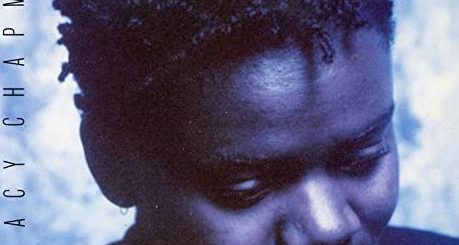Baby Can I Hold You by Tracy Chapman Lyrics Meaning – Unwrapping the Complexity of Human Connection
Lyrics
Is all that you can say
Years gone by and still
Words don’t come easily
Like sorry, like sorry
Perdonami
È una parola che
Tu non dici mai
E non ti è facile dire a me
Perdonami, perdonami
But you can say baby
Baby, can I hold you tonight?
Maybe if I told you the right words
Ooh, at the right time you’d be mine
Io t’amo
È una parola che
Tu non dici mai
Words don’t come easily
Like I love you, I love you
Ci sono parole
Che tu non sai dire, o non vuoi
Quando a volte non c’è bisogno di più
Di uno scusami, se mi vuoi
Baby, can I hold you tonight? (Che tu non sai dire, o non vuoi)
Maybe if I told you the right words
Ooh, at the right time you’d be mine
Se mi vuoi
You’d be mine
Se mi vuoi
You’d be mine (se mi vuoi)
In the intricate tapestry of modern music, few songs capture the human condition’s fragility like Tracy Chapman’s ‘Baby Can I Hold You.’ With its haunting melody and simple yet profound lyrics, the song delves deep into the realms of regret, forgiveness, and love—concepts that seem boundlessly complex and yet universally understood.
Released in 1988, this ballad remains a testament to Chapman’s songwriting prowess, distilling complex emotions into a captivating four-minute experience. This examination will not just uncover the layers of meaning woven into the fabric of Chapman’s words, but it will explore the timeless relevance of such a deceptively simple piece.
The Struggle of Expression: Why Words Fail Us
At its core, ‘Baby Can I Hold You’ speaks to a universal human struggle: the difficulty of verbalizing our deepest feelings. Chapman captures this struggle by repeating phrases like ‘Words don’t come easily,’ which becomes more than a refrain—it’s an admission of vulnerability. It’s a reminder that, as humans, our emotions often eclipse our language, leaving us silent when our hearts are full.
The inclusion of the words ‘sorry,’ ‘forgive me,’ and ‘I love you’ underscores the complexity behind such common phrases. These are words that carry the weight of the heart’s heaviest burdens, yet Chapman presents them recursively to highlight how challenging it is to say them out loud—placing listeners within the heartbreaking paradox of needing to express the inexpressible.
The Timelessness of Chapman’s Melancholic Melodies
Auditorily, Chapman’s composition juxtaposes the song’s emotional weight with a stark simplicity. The beauty lies in the elegant arrangement that does not overshadow the lyrics’ raw power but rather complements them, letting Chapman’s earnest voice drive home the song’s poignant themes.
By marrying melancholy melodies with disarmingly honest lyrics, Chapman crafts a soundscape that is both haunting and comforting. It creates a shared space where listeners may feel the embrace of the music, serving as an aural metaphor for the human yearning for connection and understanding.
Hidden in Plain Sight: The Song’s Heart-Wrenching Narrative
‘Baby Can I Hold You’ might seem straightforward at first listen, but its simplicity is its greatest ruse. Chapman deftly uses the song’s structure to narrate a tale of emotional stasis, where the passage of time fails to ease the speaker’s impediments.
The use of ‘years gone by and still’ not only expresses the constancy of these inner conflicts but also conveys a sense of time’s inability to heal all wounds, or grant the courage needed to bridge emotional gaps. It articulates the pain of years marred by what was left unsaid, underlining the poignant truth that some feelings endure, resilient against the slow march of time.
Only a Word Away: The Power of ‘Baby’
Amongst the recurring struggles to articulate complex emotions, a single word emerges as a soothing balm—’baby.’ Used here, ‘baby’ connotes a closeness that surpasses verbal communication, suggesting that there are levels of intimacy that exist beyond the reach of language.
This term of endearment, nestled within the song, becomes a bridge over the chasms of silence. When Chapman sings ‘But you can say baby,’ there’s an implicit understanding that sometimes proximity and presence can say what words cannot, affirming the profound connections we share with others, ones that are felt rather than spoken.
Timeless Yet Timely: The Song’s Echoes in Today’s World
Decades after its release, ‘Baby Can I Hold You’ still resonates powerfully. Its themes of love, regret, and the elusiveness of the right words mirror our contemporary experiences with connection in an increasingly digital age, where genuine communication often takes a backseat to convenience.
Chapman’s ballad reminds listeners that despite technology’s connectivity, the human element of touch, presence, and the courage to speak heartfelt words remains irreplaceable. In a world where interaction is often through screens, ‘Baby Can I Hold You’ feels like an important, grounding touchstone—a call to return to the core of what makes us human.








